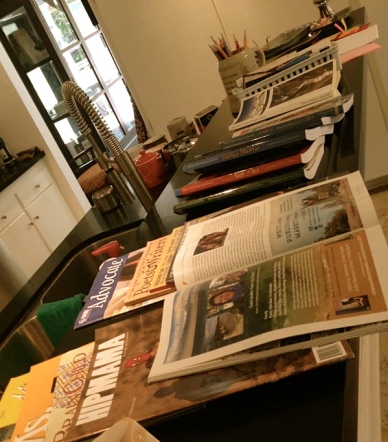Over the last month, WWS members have been getting work published and some have won awards. Here is a brief look at a few recent publications.
From Antonia Crane’s essay, “In rape culture, there’s no such thing as a safe word” published this month in Quartz:
“But as someone who has spent her entire adult life working in the sex industry, I can attest to the fact that women in this business face inherent, unique physical risks. I’ve been bitten, drugged, smacked and ripped off. Years ago, a large man tried to block me from leaving a private room in a nude strip club in San Francisco. When I yelled for help, the person who came running was a stripper named Cinnamon. She yanked him by his shirt from behind. I ran.”
From The Sundress Blog, “THE WARDROBE’S BEST DRESSED: LAUREN EGGERT-CROWE’S THE EXHIBIT“:
“When she cranes her neck up at the sky, at night, she shivers. This may be because she is trying to find Scorpio. She is more afraid of falling up endlessly than gravity. The night is colder than it should be. She wonders if one of the spheres has a hole. A leak that hisses the light out like a deflated tire.”
From Ashaki M. Jackson’s poem, “Fulcrum: The Support About Which A Lever Turns; The Part Of An Animal That Serves As A Hinge Or Support,” published in Cura Magazine:
“You consider lynching mechanics and question which was raised first – the rope or the neck. You think of the ease with which dancers lift each other’s bodies at particular curves and imagine a neck hoist bringing a faceless audience to its feet. You ask who is in this audience. You are in the audience.”
From an interview with Karineh Mahdessian and Sophia Rivera, founders of Las Lunas Locas womyn’s writing circle, published last week at La Bloga:
“So, are Las Lunas Locas really locas? How did your nombre lunático come about?
We knew we wanted to name ourselves that which spoke to us, the moon is the most feminine of it all. And womyn often tend to be thought of as “crazy” and “emotional.” In this capacity, we wanted to celebrate all things that are often misjudged and ridiculed. The naming of Las Lunas Locas allows for embracing all that is wonderful and challenging about being a womyn in a patriarchal and misogynistic society.”
From Tisha Reichle’s YA fiction piece, “I want to be a Cowgirl,” published in the latest issue of Lunch Ticket:
“Mom watches from her bedroom window; I can feel her. Not ready to be wrong about my hunger, I stand on the bales of hay stacked behind the heeling dummy. It was painted brown a long time ago and Dad actually put a frayed rope tail so it looks like the skeleton of a steer’s butt. Its rusty pole legs dangle lifeless until I kick them; their squeaky rhythm breaks the morning’s silence. Mom closes the curtain. She hates when I practice roping and defy her orders.”
From Tiana Thomas’ essay, “High Hopes For Thanksgiving (And What It’s Like To Grow Up On A Pot Farm)” published last month at Role Reboot:
“Mom is sitting at the kitchen table with several bags of weed in front of her. She has taken off her jeans, and has a glossy look of heat shining off her face, as she rolls another joint. I head out the back door to the wooden water tank at the rear of the house. It’s hot and I’m thirsty. The tank sits in the shade surrounded by Ti leaves and banana trees, its sides covered in thick green-black moss and a thin layer of moisture. The rainwater that fills the tank is sweet. I slurp it straight from the spout, letting the run-off splash on my muddy toes.”
Lastly, congratulations to Melissa Chadburn and Xochitl-Julisa Bermejo who share the honor of being awarded grants for nonfiction from Money for Women/Barbara Deming Memorial Fund.
On Melissa’s project:
“This essay collection includes the title essay, a previously published piece about my experience in foster care. The other essays capture the myriad of effects of poverty—or the converse: the effects of affluence and power. I think this is the one element that binds all of my work together—I talk about class and race but what I really am speaking of are the effects of power on the human condition.”
Pssst! Fiction writers, The Barbara Deming Fund is now taking applications for fiction projects. It awards “small artist support grants ($500-$1500) to individual feminist women in the arts.” Submissions close December 31st.



